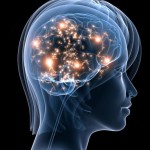 Everyone is familiar with the mental lethargy the slowly but steadily tends to creep over you during a long day at the office. It can be tempting to the feel as though your workplace is draining the brainpower right out of your head at times! For some people, that gut feeling is far from incorrect. A study from Harvard found that individuals who work in modern buildings, designed expressly to guarantee good air circulation and excellent lighting, are both happier and more productive at their place of employment.
Everyone is familiar with the mental lethargy the slowly but steadily tends to creep over you during a long day at the office. It can be tempting to the feel as though your workplace is draining the brainpower right out of your head at times! For some people, that gut feeling is far from incorrect. A study from Harvard found that individuals who work in modern buildings, designed expressly to guarantee good air circulation and excellent lighting, are both happier and more productive at their place of employment.
There is no lack of media coverage regarding air pollution and CO2 growing presence in our planet’s atmosphere, but much less of the conversation usually revolves around indoor air pollution. This is unfortunate because there is a lot to know. The concept of building-related health issues (or sick building syndrome) extends back at least thirty years. By the 1970s, organizations were reporting concerns about the costs associated with health problems directly caused by a poor indoor environment. At the time, the EPA found that indoor air could be as much as times more polluted than the air outside. Since then, the body of research about indoor air pollution and its relationship to health, productivity, and learning has grown exponentially. The scope of this work has only recently expanded to include the impact indoor pollution may have explicitly on cognitive function.
The research team from Harvard found evidence to confirm that these correlations do in fact exist, as well as why. Led by Joseph Allen, the study is named Associations of Cognitive Function Scores with Carbon Dioxide, Ventilation, and Volatile Organic Compound Exposures in Office Workers: A Controlled Exposure Study of Green and Conventional Office Environments.
Allen’s team tracked the behavior of two dozen people as the completed six full work days under three different conditions. One was in a conventional building with high Volatile Organic Compounds (VOCs). The second condition was in a green building with low VOC levels. Finally, the study participants worked in a green building with both low VOC counts and ventilation from the outside. At the end of the study, Allen and his associates concluded that cognitive scores were, on average, over 60% better when participants were working in building with low pollution. On days when cognitive ability was measured in green buildings with great outdoor air ventilation, scores rose by over 100%. Clearly, if you are looking to sharpen your cognitive function, one of the easiest and most effective things you can do is remember to take a breath – of fresh and clean air.

